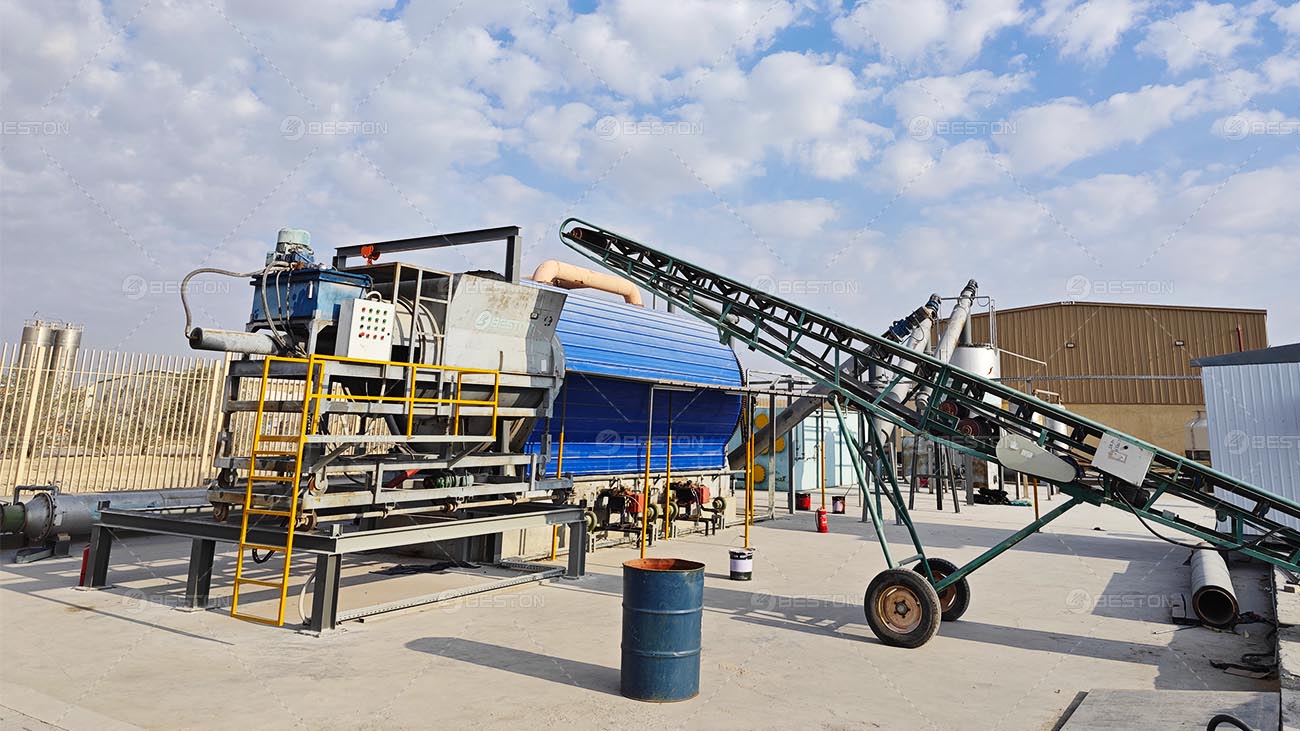The growing concern over environmental sustainability and waste management has led to the emergence of innovative technologies, among which tyre pyrolysis plant stands out. This technology efficiently transforms end-of-life tyres into valuable products such as fuel oil, carbon black, and gas. With the global increase in waste tyre generation, various industries can benefit from investing in a waste tyre pyrolysis plant. Below are key sectors where this investment proves particularly advantageous.

1. Waste Management Industry
The waste management sector is directly impacted by the increasing volume of discarded tyres. Investing in a tyre pyrolysis plant enables waste management companies to provide sustainable solutions for tyre disposal. By converting waste into usable resources, companies can enhance their service offerings while complying with environmental regulations. This approach not only reduces landfill pressure but also generates revenue through the sale of pyrolysis by-products.
2. Energy Sector
The energy industry is a significant beneficiary of tyre pyrolysis technology. The fuel oil produced during the pyrolysis process can be utilized as a substitute for traditional fossil fuels in various applications. Power plants, cement factories, and industrial boilers can all incorporate this renewable fuel, contributing to a more sustainable energy mix. By investing in a tyre pyrolysis unit, energy companies can diversify their fuel sources and improve their carbon footprint.
3. Automotive Industry
The automotive sector is intrinsically linked to the tyre market. As vehicle production continues to rise, so does the demand for tyre recycling solutions. A tyre pyrolysis plant can serve as an essential component for automotive manufacturers looking to adopt circular economy practices. The carbon black produced from tyre pyrolysis can be repurposed as a reinforcing agent in new tyres, thus closing the loop on tyre manufacturing and disposal. This not only reduces waste but also lowers production costs by utilizing recycled materials.
4. Manufacturing Sector
Various manufacturing industries can reap the benefits of tyre pyrolysis by utilizing the by-products generated. Carbon black, a key by-product, is used extensively in rubber, plastics, and coatings. Its high demand across these sectors provides a lucrative opportunity for manufacturers to invest in tyre pyrolysis plants. Furthermore, the oil produced can be refined into various petrochemical products, enhancing the profitability of manufacturing operations.
5. Construction Industry
The construction industry is increasingly adopting sustainable practices, making it a suitable candidate for investing in tyre pyrolysis technology. The carbon black and char produced can be utilized in construction materials, providing a dual benefit of recycling waste while enhancing product performance. Incorporating these materials into concrete or asphalt can improve durability and reduce the reliance on virgin materials, thus contributing to more sustainable construction practices.
6. Chemical Industry
The chemical sector can significantly benefit from the versatile outputs of a tyre pyrolysis plant. The fuel oil can serve as a feedstock for the production of various chemicals, including solvents and additives. Additionally, the process gas generated can be harnessed for energy production within chemical plants, further optimizing operational efficiency. As the chemical industry continues to seek sustainable feedstock alternatives, tyre pyrolysis technology presents a viable solution.

7. Agricultural Sector
Investing in tyre pyrolysis technology also holds potential for the agricultural sector. The carbon char produced from pyrolysis can enhance soil health when used as a soil amendment. This biochar improves soil structure, increases nutrient retention, and promotes microbial activity, which are essential for sustainable farming practices. Farmers looking to improve soil fertility while managing waste can find value in this innovative application.
8. Environmental Consulting Firms
As businesses face increasing pressure to comply with environmental regulations, consulting firms can play a crucial role in guiding companies toward sustainable practices. By advocating for investments in tyre pyrolysis plants, environmental consultants can help clients navigate the complexities of waste management and emissions reduction. This creates a symbiotic relationship where consulting firms can expand their service offerings while promoting eco-friendly initiatives. If you would like more environmental support, please contact Bestongroup.
Conclusion
The versatility and sustainability of tyre pyrolysis technology make it an attractive investment for various industries. From waste management and energy to manufacturing and agriculture, the applications are extensive and impactful. As global awareness of waste management and environmental responsibility grows, the tyre pyrolysis plant emerges as a pivotal solution for recycling and resource recovery. Industries that invest in this technology not only contribute to a circular economy but also position themselves for long-term profitability and sustainability. Embracing this innovation will play a critical role in addressing the challenges posed by waste tyres and fostering a greener future.